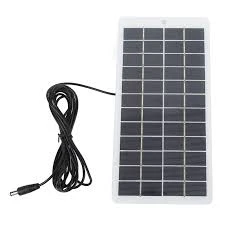Exploring Different Varieties of Hybrid Inverters for Modern Energy Solutions
Understanding Types of Hybrid Inverters
Hybrid inverters play a vital role in modern renewable energy systems, combining the functionalities of both grid-tied inverters and off-grid inverters. They provide a versatile solution for energy management, allowing users to harness energy from different sources and store it efficiently. As the demand for sustainable energy solutions continues to rise, understanding the different types of hybrid inverters becomes crucial for effective energy management in homes and businesses.
What is a Hybrid Inverter?
A hybrid inverter is an advanced device that allows you to connect multiple energy sources, such as solar panels and battery storage systems, while also linking to the utility grid. This flexibility offers users the option to consume electricity from various sources, maximizing energy use and minimizing reliance on the grid. Hybrid inverters can optimize energy consumption by managing when to use solar energy, store it, or sell surplus energy back to the grid.
Types of Hybrid Inverters
1. Single-Phase Hybrid Inverters Single-phase hybrid inverters are commonly used in residential applications. These devices can handle power loads up to 5kW, making them suitable for homes with typical energy consumption. They are relatively easy to install and are often more affordable than their three-phase counterparts. Single-phase inverters work well with smaller solar panel systems, allowing homeowners to take advantage of solar energy and battery storage for backup power.
types of hybrid inverters

2. Three-Phase Hybrid Inverters Three-phase hybrid inverters are designed for larger applications, including commercial buildings and large residential systems. They can manage higher power loads, typically exceeding 5kW, making them suitable for more extensive energy requirements. These inverters are ideal for establishments with high power consumption, as they provide a balanced load and increased efficiency. Three-phase systems can also improve the reliability of power distribution.
3. Grid-Interactive Inverters Grid-interactive hybrid inverters actively engage with the utility grid, allowing users to upload surplus energy generated from their solar panels. This type of inverter can automatically switch between using grid power and stored energy based on real-time demand. The ability to feed excess energy back into the grid can often generate credits on electricity bills, enhancing cost savings for the user.
4. Off-Grid Hybrid Inverters Off-grid hybrid inverters are designed for applications where access to the utility grid is limited or nonexistent. They allow users to rely entirely on solar energy and battery storage for their electricity needs. These systems are particularly valuable in remote locations and for users prioritizing energy independence. Off-grid hybrid inverters can also include additional functionalities such as generator integration to ensure power availability during prolonged cloudy periods.
5. Multi-Mode Hybrid Inverters Multi-mode hybrid inverters offer the most versatility by combining the features of on-grid, off-grid, and battery systems. They can seamlessly switch between different modes based on the energy availability from solar, batteries, and the grid. This type of inverter is well-suited for users who want a robust solution to manage energy needs, ensuring that they have backup power during outages and can also maximize the benefits of renewable energy generation.
Conclusion
Understanding the various types of hybrid inverters is essential for those looking to invest in renewable energy solutions. Each type serves a specific purpose, catering to different energy needs and consumption patterns. By evaluating energy requirements and future goals, homeowners and businesses can select the most suitable hybrid inverter to optimize energy management, reduce utility bills, and contribute to a sustainable future. As technology continues to evolve, hybrid inverters will undoubtedly play a crucial role in the transition toward a more energy-efficient world.
-
Understanding the Advantages of Solar String Inverters for Your Energy SystemNewsApr.29,2025
-
Choosing the Right PV Inverter: A Comprehensive GuideNewsApr.29,2025
-
The Future of Solar Power: Exploring Bifacial Solar PanelsNewsApr.29,2025
-
The Complete Guide to Solar Panels: Efficiency, Cost, And InstallationNewsApr.29,2025
-
The Best Options for Efficiency and Cost-EffectivenessNewsApr.29,2025
-
Harnessing the Power of Off-Grid Solar Inverters for Energy IndependenceNewsApr.29,2025







